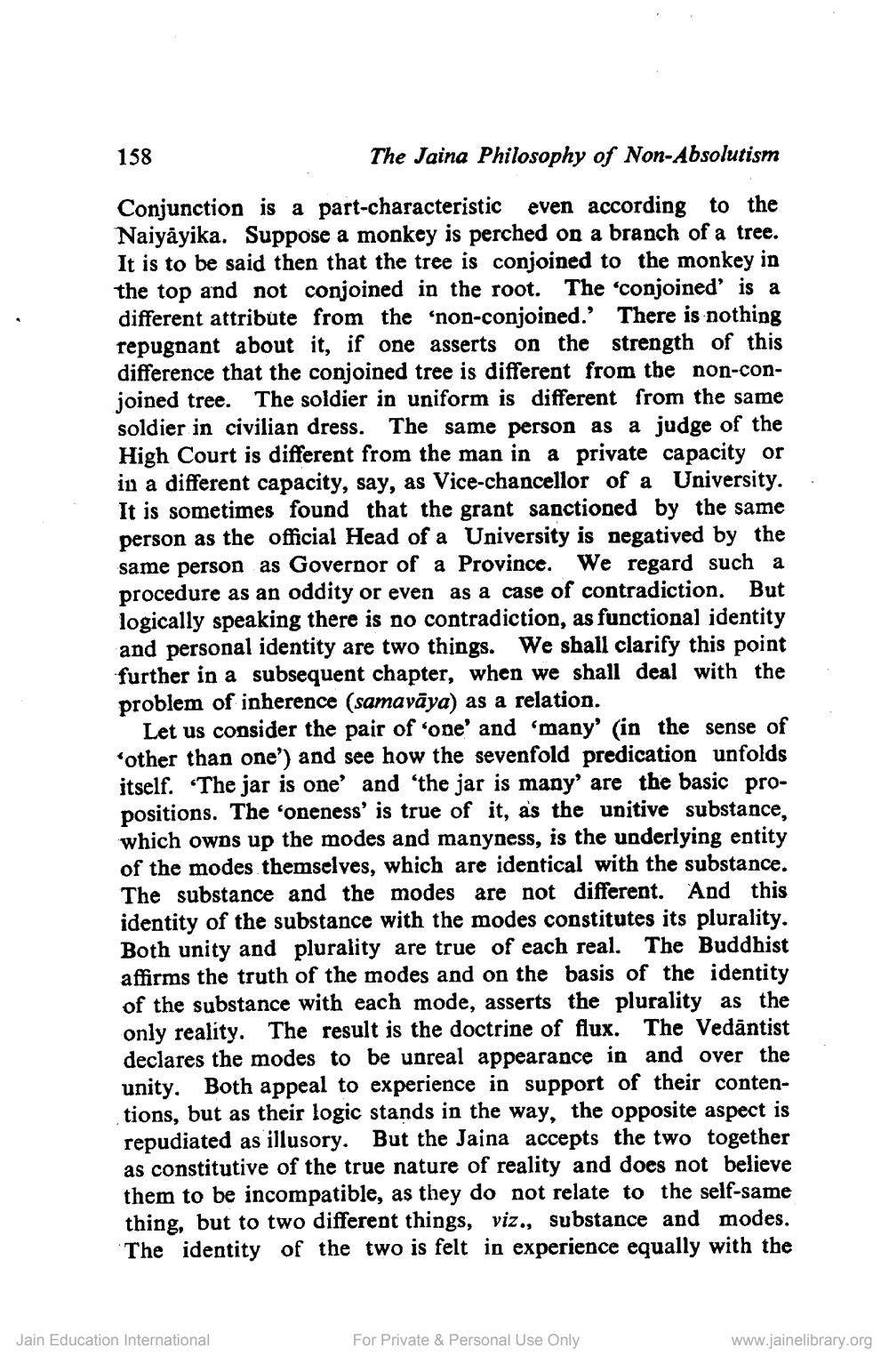________________
158
The Jaina Philosophy of Non-Absolutism
Conjunction is a part-characteristic even according to the Naiyāyika. Suppose a monkey is perched on a branch of a tree. It is to be said then that the tree is conjoined to the monkey in the top and not conjoined in the root. The 'conjoined' is a different attribute from the 'non-conjoined.' There is nothing repugnant about it, if one asserts on the strength of this difference that the conjoined tree is different from the non-conjoined tree. The soldier in uniform is different from the same soldier in civilian dress. The same person as a judge of the High Court is different from the man in a private capacity or in a different capacity, say, as Vice-chancellor of a University. It is sometimes found that the grant sanctioned by the same person as the official Head of a University is negatived by the same person as Governor of a Province. We regard such a procedure as an oddity or even as a case of contradiction. But
cally speaking there is no contradiction, as functional identity and personal identity are two things. We shall clarify this point further in a subsequent chapter, when we shall deal with the problem of inherence (samavāya) as a relation.
Let us consider the pair of 'one' and 'many' (in the sense of ‘other than one') and see how the sevenfold predication unfolds itself. The jar is one' and 'the jar is many are the basic propositions. The 'oneness' is true of it, as the unitive substance, which owns up the modes and manyness, is the underlying entity of the modes themselves, which are identical with the substance. The substance and the modes are not different. And this identity of the substance with the modes constitutes its plurality. Both unity and plurality are true of each real. The Buddhist affirms the truth of the modes and on the basis of the identity of the substance with each mode, asserts the plurality as the only reality. The result is the doctrine of flux. The Vedāntist declares the modes to be unreal appearance in and over the unity. Both appeal to experience in support of their contentions, but as their logic stands in the way, the opposite aspect is repudiated as illusory. But the Jaina accepts the two together as constitutive of the true nature of reality and does not believe them to be incompatible, as they do not relate to the self-same thing, but to two different things, viz., substance and modes. The identity of the two is felt in experience equally with the
Jain Education International
For Private & Personal Use Only
www.jainelibrary.org




